It really resonates with me when I can see that I’ve captivated somebody for a brief moment.
Photography by Tamar Levine
Styling by Mandy Mitchell @ Celestine Agency
Grooming by Hailey Adickes @ Celestine Agency
Set design by Sarah Sloane
Photographer’s assistant: Sean Moore
Special thanks to LME Studios
Film festivals. Anthem has been there—near, far, big, small, famed and obscure. Cannes, Macao, Sundance, Shanghai, AFI, Toronto, Busan, Tokyo, Tribeca, San Sebastián, Rome, Venice, Munich, New York, Berlin. Itineraries, all of them, governed by unchecked film nerdom. And because no one is born at their destination, festivals that have become yearly traditions are the byproducts of accrued knowledge and experience, and unquestionably, it’s simply a matter of personal taste.
Last month, Anthem returned to the Bucheon International Fantastic Film Festival in South Korea for the third consecutive year. A gem among genre festivals the world over for its bonkers curation, X-rated audacity and the sheer fun of it for which it goes unrivaled, it is here that we not only discovered one of 2019’s best films, Fatih Akin’s shocking The Golden Glove—second only to Bong Joon-ho’s Palme d’Or winner Parasite—but a fresh-faced actor to put on our radar.
Kevin Fonteyne graced his presence as one of the stars of Mick Garris’ summer horror anthology Nightmare Cinema, comprising five segments framed by a wrap-around story featuring random strangers inexplicably drawn inside a mysterious movie theater. There, each doomed character, including Fonteyne’s Jason, encounter The Projectionist (played by the inimitable Mickey Rourke), a self-professed “death collector” and the “curator of a 100 years of nightmares trapped on a silver screen” who taps into your worst fears and forces you to live them out in his spooky moviehouse.
Previously, Fonteyne enjoyed a recurring role on ABC Family’s Melissa & Joey and Showtime’s Masters of Sex, and portrayed the legendary Johnny Cash on CMT’s Sun Records, the television adaptation of the Tony Award-winning play Million Dollar Quartet. Next up for the endlessly charismatic 29-year-old Texas native is a leading role in Mark Gantt’s debut feature Model Citizen.
This week, Anthem went in to get a closer inspection of the actor’s journey to here—and beyond.
Nightmare Cinema is now available On Demand.
Nightmare Cinema is probably a good place to start with this. That’s where I first saw you, Kev. You must’ve had a lot of fun on that shoot.
Man, it was a blast. Alejandro [Brugués] was so much fun to work with and so inventive with his ideas, as you saw. Just how I die? It’s the perfect satire of this genre. We shot it fairly quickly. I did all my own stunt, which was pretty grueling, but a lot of fun. That whole bit where I’m thrown over a counter and he’s smashing my head into it? I did all of that maybe 15 times.
Your scene with that cop car? That was a very explicit nod to I Know What You Did Last Summer. This is how much of a ‘90s slasher nerd I am. You turned into Sarah Michelle Gellar right before my eyes.
[laughs] Hey man, that’s not a bad comparison. I like Sarah Michelle Gellar and that’s a great movie. That was such a classic.
Do you talk about that with the director? Does Alejandro tell you what that is going into it?
No. He was like, “Okay, cool, you’re gonna get away and then, oh shit, you know the guy. Then the guy shows up and it’s like you’re trying to do all of these things. You think you’re gonna get away? Go back in the car! Go back into the house!” [laughs] All of this stuff.
How much of a horror movie guy are you? Do you go out of your way to watch them?
Oh yeah. I love horror. It’s such a fun genre to do. And if it’s well done? I mean, when I saw The Cabin in the Woods, which we‘re getting a lot of comparisons to, our segment in the movie, I was like, “ This is one of the greatest horror movies that I’ve seen.” Pet Cemetery, Cujo—those are all classics by Stephen King. Geez, The Ring? I’m such a horror buff. I love it. The Midnight Meat Train with Bradley Cooper. I don’t know if you’ve seen that movie.
Oh I haven’t even heard of it.
That one is one of my favorites.
In the movie, these strangers are drawn to a mysterious theater and forced to watch their nightmares play out in front of them. If this were a real-life thing, what do you imagine you’d see up there?
What am I scared of? I would say probably… Did you ever see It’s a Wonderful Life with Jimmy Stewart? That whole Christmas movie and what happens to him in that movie. If I woke up one day and no one knew who I was? All the people that I loved knew that I never existed? I wouldn’t know what to do. Them not knowing who or what I am, and trying to see if I’m crazy or not? Are these fake memories? I don’t know. That would be a horrible nightmare for me.
So Kev, you went out pretty brutally in this movie. You might as well. You are in a horror movie.
[laughs] Yeah.
You’re one of six siblings, right?
Correct.
They must watch this stuff and get such a kick out of it.
Oh yeah. If it’s totally ridiculous, they laugh at me. Mostly, they just make fun of me. They keep me humble and tell me how ridiculous the things are that I’m doing. The typical sibling stuff. They’re proud of me, obviously, but they love to make fun of me.
Is anyone else in your family from the business?
No. I was the only one crazy enough to make the decision to pursue this.
You were born in San Antonio, Texas, but you grew up in Manchester, New Hampshire.
I went to Manchester when I was 18 days old. Really young, because my parents separated and we got relocated up to New Hampshire. I was living up there until the third grade and then I moved to Portsmouth, New Hampshire, which is like an hour away. So I was at the very end of third grade and I stayed all the way up there until high school. Then I moved to L.A.
What were you like as a kid?
[laughs] Very, very animated. A lot of energy. Always looking for adventure. I was very weird. I was not the most popular in school. I did the band and the choir and the plays. I definitely found this niche that I was good at and it just kind of stayed that way for me.
It seems like you gravitated towards acting at a pretty young age. I’m always surprised to hear stuff like that from actors because I didn’t talk in elementary school. I was basically mute.
Really?
It’s always interesting to me how little kids find their confidence.
I think that stems from growing up 1 of 6 kids. If I wasn’t expressing myself or making myself heard, it would be lost in the herd essentially. Also, growing up, we would do family reunions. My dad is also from 7. All of my aunts and uncles, and all of my cousins on my dad’s side, we’ve all gotten together. 25 kids running around doing all this crazy stuff. My grandma, my nanny, would put on one of those magic shows so that’s how it started things. I was really young doing these little magic shows at family reunions. So I always felt very comfortable performing and doing stuff to entertain people. For some reason, it really resonates with me when I can see that I’ve captivated somebody for a brief moment.
Were you competing for attention?
I wasn’t looking at it like a competition thing at that age. It was more like, “How can I add to this?” I guess I always wanted to add something and make my mark.
After high school, you moved out to Hollywood.
Yeah. I got signed by my manager. He met me at a scouting event in Boston. He came up to me when I wasn’t even auditioning or anything. He asked me to do a scene in front of everybody and give a speech the following day, and I did. He had told the audience that he had the best saved for last. He signed me and I moved to California.
What was that transition like?
Well, I don’t know if that was the transition. I always knew, somehow and some way, that I was going to pursue this. I didn’t know what the path would be or how it would be presented to me, but I knew that whenever I got an opportunity I couldn’t ignore it. At this young age right out of high school—I was 17 when I met him and wanted me to sign with him, and I was 18 when I graduated—I worked all summer. It was really scary to move 3,500 miles away from my family. I’m so young and I don’t know anybody. But I know that if I don’t do this, I will regret it for the rest of my life. The threat of regret was more profound than the fear of the uncertainty.
When did you feel like you really made it as a working actor in your timeline?
This is a tough question to answer. That’s the tricky thing about this business. I don’t want to say that you’re only good as your recent project, but I guess for me, I don’t ever wanna say, “Yeah, I’ve made it.” I wanna keep doing stuff. I wanna keep getting better. Not that I have this egotistical aspect about me like I need to conquer the world sort and that I’m never content. I think if you’re not pushing yourself to be better and keeping that fire under you, we’re just stagnant. That goes for any sort of business, whether you’re a doctor or a lawyer. You wanna be a pioneer in your field, right?
Sure. I don’t believe you shared any scenes with Mickey Rourke in Nightmare Cinema. Did you get some one-on-one time with him on set?
I actually didn’t, unfortunately. We only shot in that cabin location. I would’ve loved to have met him.
Doing an anthology, do you get the whole script?
I only had Alejandro’s story that I was in. I only met the crew on that set. I mean, I want to say that they shot this for the better part of a year with all the different locations and shooting it with all the different crews and the pick-up shots at the theater. It was quite a well orchestrated production and my hat goes off to the coordinator.
And I bring up Mickey Rourke because he’s one of those people who doesn’t seem to give a fuck what other people think. He can’t seem to help but only be his true self. I love that about him. You must meet an entire spectrum of people in this business.
Yeah, I feel incredibly fortunate. One thing about entertainment and art and that whole spectrum of work is that it’s the only place that I feel your work actually enables that. You need that in order to thrive. I feel like that’s the problem with a lot of people in my business: they are petrified of being themselves and letting go and being vulnerable and expressing their doubts and concerns. Not caring about what somebody cares about them. Having an outlet to nurture that human soul is—I couldn’t be luckier to have the job that I have.
You come from the world of television, which is different from the demands of working on a feature. And with TV, it must also be very different working on a sitcom. Is there something you’ve become more accustomed to?
With films, I think you definitely have a lot more freedom in the sense that you don’t have a certain time frame that you shoot the whole episode into and you have to deliver the lines fairly quickly. You can have moments of that in films, which is nice. Typically with films, too, you can have more in-depth characters and a more fulfilled arc throughout the entirety of it and know for sure where the character is totally going. TV is a little different because most of the time you get episode after episode. You’re not handed the whole season. You don’t know exactly what will transpire so you’re kind of figuring it out as you go along with all the directors. You typically don’t have the same director for every episode throughout the season. It’s always a new learning aspect and about adapting to each director’s style, which is cool. It’s a nice challenge and it always pushes you to think of different things in the scenes and for your characters. Then with sitcom, it’s just a little bit bigger. I came from theater growing up so that aspect is really nice: the live audience and filming the whole scene instead of having to do set-ups for the camera and get the lighting and turn it around. There are definitely aspects to all of them that I like. With sitcoms, you only work maybe 20 hours a week and that’s it. You have the weekends off. With film, you can work 12 to 15 hours a day depending on what the shoot is and do that every day of the week. It’s a lot more grueling. But I feel as though the payoff is a little better creatively. That is, not financially or any other way like that.
I think it’s the same for any character you would approach regardless of the medium, which is with an open mind. Because you like the directing style of one director, that doesn’t mean you wouldn’t like the style of another or the way they present notes to you. I think the faults of actors is when they know what’s “right” and not keeping an open mind and making assumptions as to what the character wants. Yeah, I think it’s about keeping an open mind and being accepting of new ideas and opportunities and thoughts.
What was it like to play Johnny Cash? We get wildly fanatic about cultural icons. Look what happened with Elvis recently.
I couldn’t believe it to be honest with you. I had my first audition and thought I ruined it. I thought I botched it. I was like, “Dang it, I cut the scene before they turned off the camera.” I didn’t feel good about the song I played. Then I got a call from my agent the next morning: “They want to talk to you.” I called casting and they gave me notes and brought me back the next day. I ended up going in like 5 times throughout the whole process. They would give me more notes: “You have to be more Johnny.” I’m just trying to get there, right? I just kept doing it and doing it, then I thought, “What can I do to separate myself a little bit?” I already knew a lot of Johnny’s songs so I just made a little medley of a bunch of his songs and strung them together. They let me do it and they weren’t annoyed by it. I feel as though that was something that separated me. I found out I booked it on February 26th, which was Johnny Cash’s birthday.
Woah.
It felt too good to be true the whole time. Every time they would bring me back, I’m like, “Really? Okay! Let’s go!” Then I ended up getting the call that I got it. The whole process of filming it and living in Memphis and walking the streets that Johnny walked and standing in the spot where he played his first show ever and walking through Sun Records? It was incredibly daunting and nerve wracking because of the legacy of Johnny. But I I did my best to just stay true to what I thought he held dear. Yeah, it was so much fun. I always enjoyed his music. I was such a fan of him growing up. I remember when he died, I think I was in the eighth grade. That was a really sad moment. That’s a legend, gone. So to be able to play that? Rarely do you get a chance to play somebody of that caliber.
I love your Instagram stories by the way. You really get your positivity beaming across on that platform.
That makes me feel so good, Kee. I don’t want to be one of those guys on Instagram where it seems like you’re egotistical. I want to inspire people and be something. We live in a time where there’s so much identity crisis and uncertainty about the path that people have. If I can do anything to just let people know that it’s okay and you need to do whatever you need to do to make yourself happy and have joy in your heart about it, you can’t go wrong.
What do you do for self-care?
I’ve really been working on that a lot more lately. I mean, I woke up on Sunday morning and heard about the second shooting within that 24 hours and I just cried for 20 minutes. Just sobbing. I hate to hear about all this turmoil and anguish in the world. I more immediately focused on me, making sure that I can better myself and knowing that I’m doing the best I can today. I’ve been meditating a lot more recently and focusing my attention on my intentions and what my purpose is in life. I think if you have a clear purpose, regardless of what happens to you, it will not deter you from your purpose if you know that so well. It’s constantly changing as we all change. The biggest thing is understanding of why we’re here. It truly comes down to you understanding yourself more versus the things you’ve done or the amount of money you’ve made. That will all go away eventually.
By the way, I reached out to your director Mark Gantt. I was hoping to grab some press materials for your upcoming film, but I think it’s still too early for that. Tell me about working on Model Citizen.
It’s based on a true story, loosely. It’s the first some what of a villain that I’ve ever played, which was a lot of fun for me. I didn’t know I had that sort of aspect to me as an actor so that was really cool to discover. I’m actually younger than Shawn [Pyfrom], who plays my brother, but I play the older brother. I was initially supposed to go in for the younger brother, but it was like, “I don’t think I’m the younger brother here.” I called up my agent: “Can I go in for the older brother role?” Then I didn’t hear any news for a month and then all of a sudden I got an email saying I was offered the role, which I was completely shocked by. Because if you don’t hearing anything within two, three weeks, you just move on and keep going. It was a long shoot. There was a lot of physicality in it. There’s a really cool, beautiful storyline between me and my brother who’s dying of cancer. It’s a wonderful story, although dark, about the thing that people will do for the ones that they love. That was the overall thing that I truly felt drove me to want to play the older brother too because even though he’s older, I felt as though he was the younger one. He idolizes his brother so much and wants to take care of him.
You knew what was important to you.
Yeah, I think that’s the truth about any time an actor is able to play a role. You’re never going to play a role that you don’t connect with or that you’re not ready for or doesn’t resonate with you. I immediately felt this energy about this character and story that upset me. I just felt it in my core and I didn’t ignore it. I felt it as much as I could.
What are you working on now, Kev?
I’ve been learning a lot of French.
Oh you are? That’s awesome.
Yeah. I went to Montreal last summer and took an incentive there. I’ve always wanted to learn another language. I didn’t want to keep that part of me vacant. I started pursuing that a lot more. Actually, I’ve been going out a lot for French roles. I just read a really great script and went in and read for it. It’s this French role for this new show called Emily in Paris. We’ll see what happens with that, but either way, I’m just happy. There’s a certain gratitude that you envision for yourself when you’re seeing the benefits of the work that you’re doing, whether it be just an opportunity and not getting actual work but knowing that you developed another part of yourself. That’s a lot of fun. I think that’s one of the biggest works that actors need to work on. It’s not just, “I got this project!” It’s knowing that, the more you do to better yourself, the more you’ll prolong your career and give you more opportunities. That’s what I’m doing right now and mostly just doing as much as I can to get better at—anything. To better myself.
What have you learned about acting, or more generally this business, that you know to be 100% true?
That having the wrong desire and the wrong intentions will never get what you want.
Which is what? Fame?
I see so many actors that are successful and have money and have the nice houses and drive nice cars and working—doing the thing—and they’re not happy. They have something to complain about all the time. I think they have the wrong intention about why they want to be actors, or they lost sight of it. I think you need to maintain the eyes of a child, just know that everything that you get is good and you need to enjoy it. Nothing is promised in this business, that’s the one thing I know for sure. It’s all uncertain. When you are experiencing success and benefiting from your work, just enjoy it. The biggest thing that I would say is, enjoy this ride that you get to go on. Because it’s a dream—for anybody! There are people in this whole world that would kill to do the things that we do, and I know people who just completely undermine it and don’t appreciate it. I think that’s the biggest fault of people.
What else do you do for self-care? I think it’s so important to rally around each other in talking about this thing called mental health that is so scary to talk about.
For me, the biggest thing is journaling. I journal a lot. I process my journey and what it means to me. The effects of the things I’ve experienced. I don’t ever want to reach a point in my life where I say, “What have I done? I don’t really remember going to work. I don’t remember driving,” you know? I don’t want to go aimlessly through my life. I think to sit with yourself and process your journey is one of the biggest, biggest things in self-care. To understand why you feel the way you feel and to know what you could do to change it. Once you have that power in you, to know that you have the choice to change it and you find that on your own? You can’t be swayed.
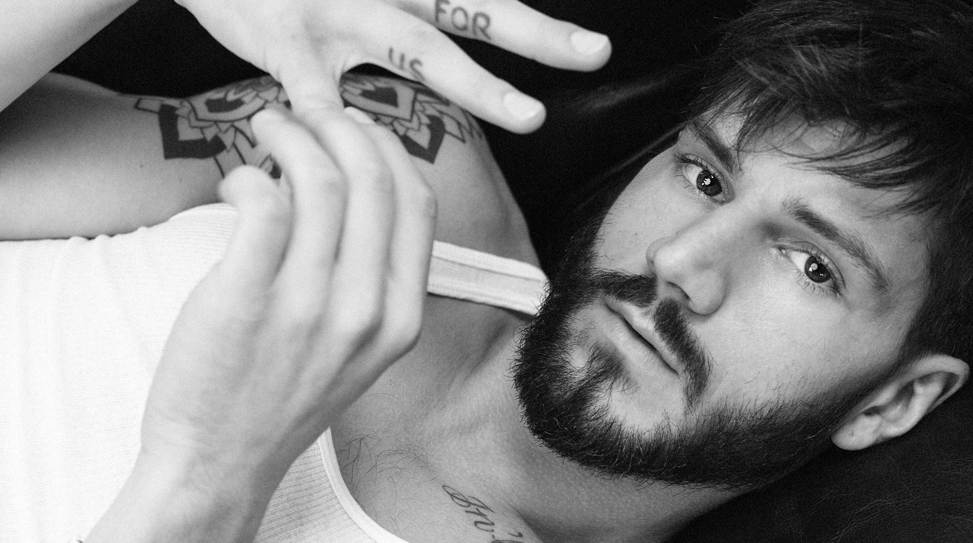

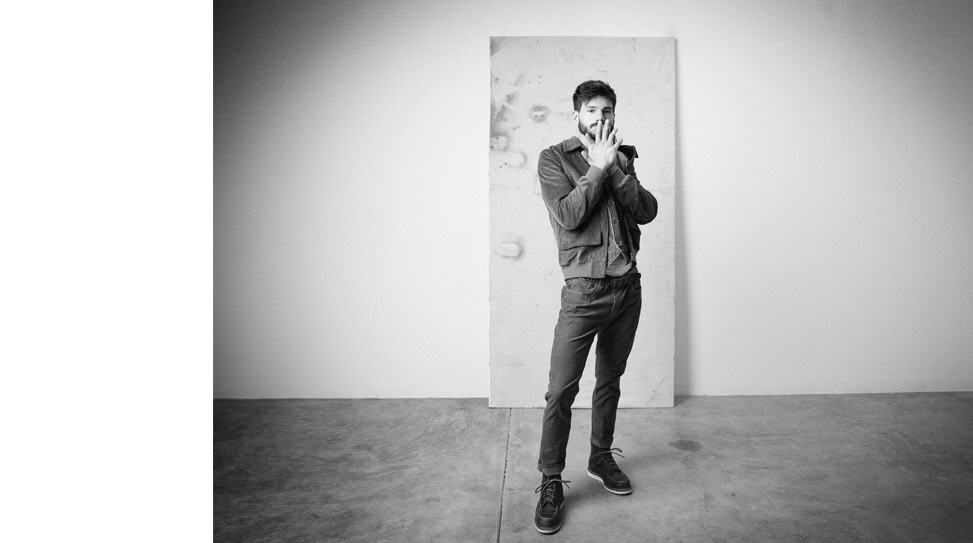
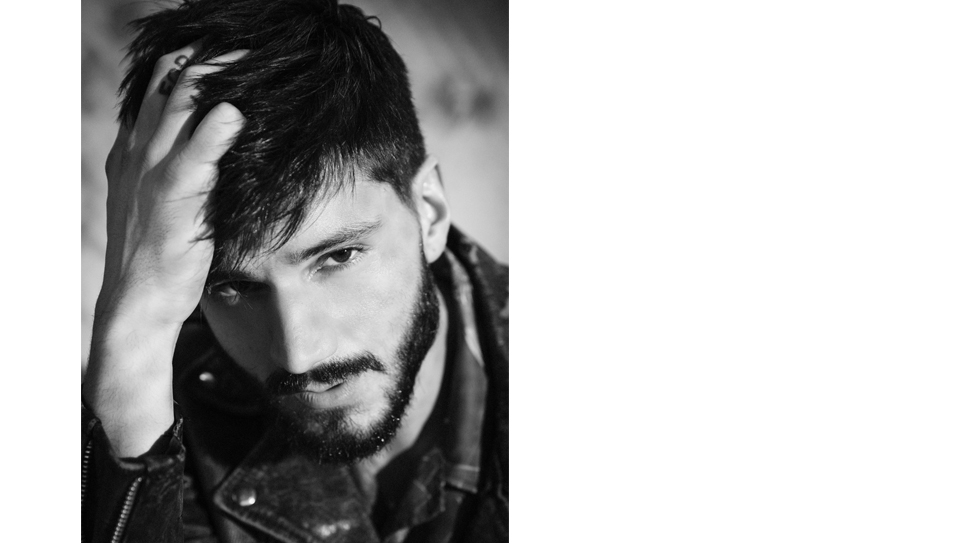
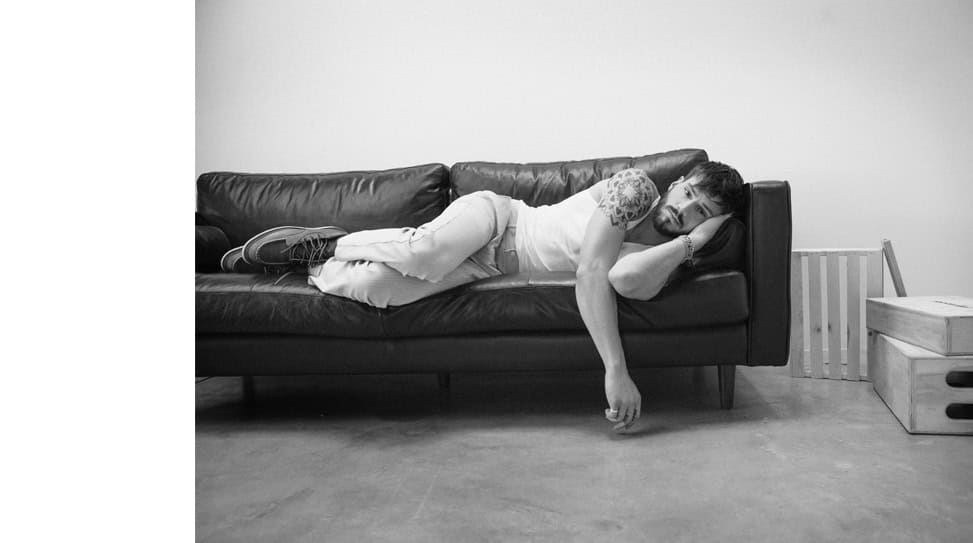
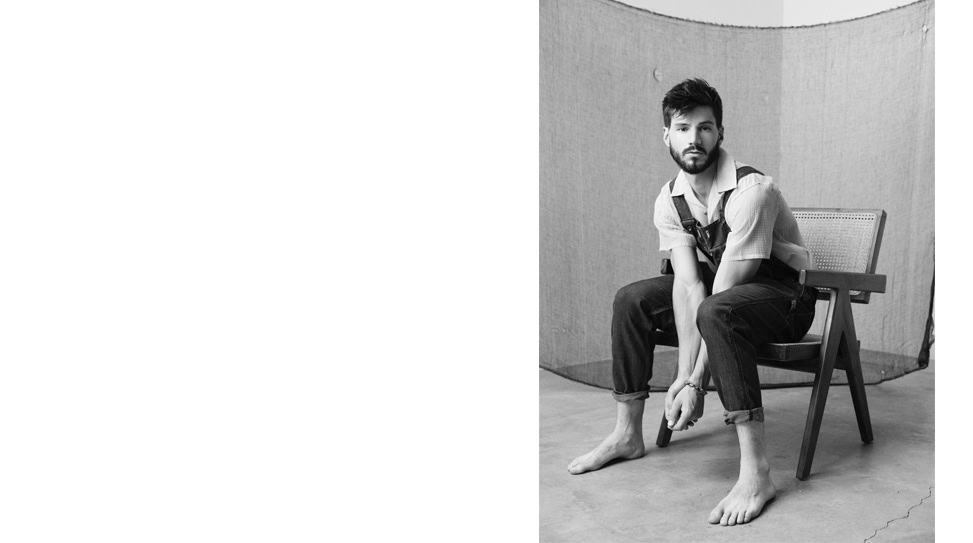
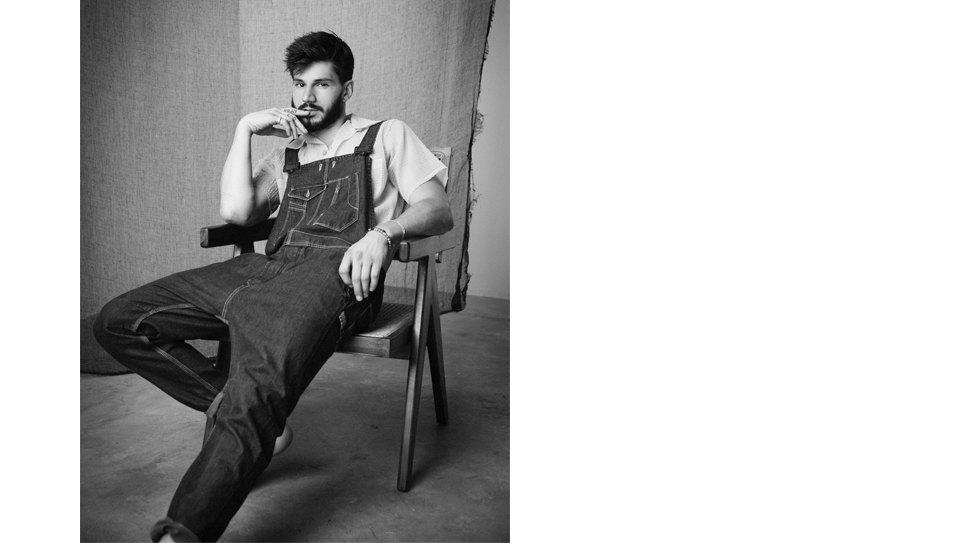
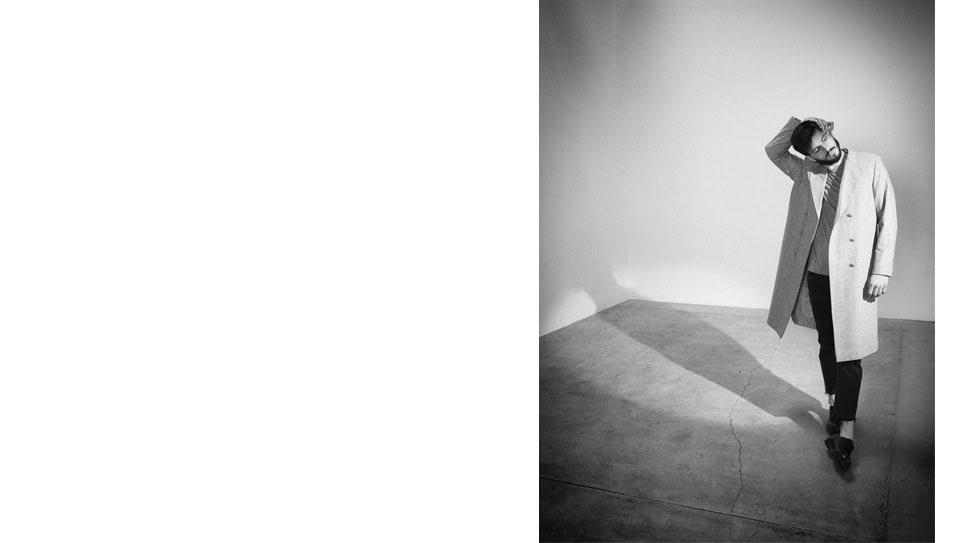
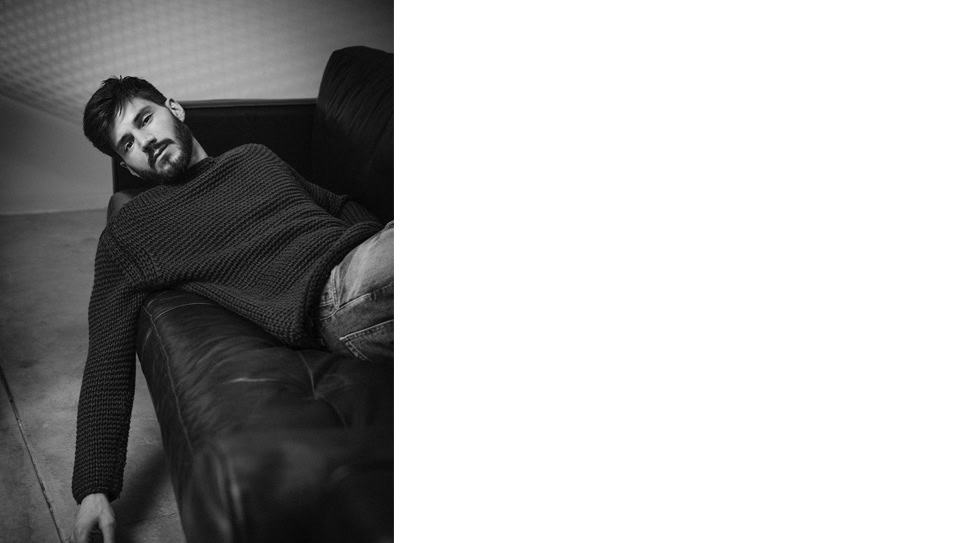
 A Conversation with Sean Wang
A Conversation with Sean Wang A Conversation with James Paxton
A Conversation with James Paxton
No Comments